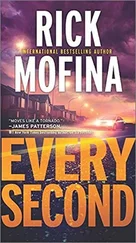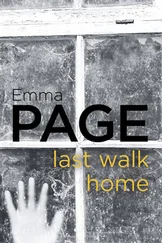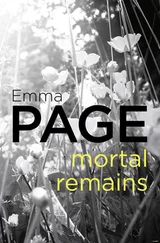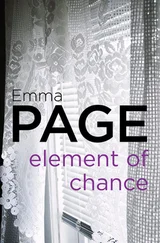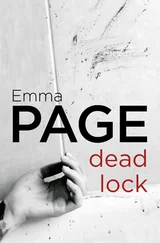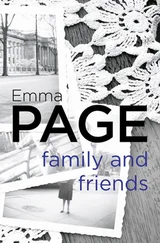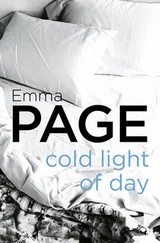Emma Page - Every Second Thursday
Здесь есть возможность читать онлайн «Emma Page - Every Second Thursday» — ознакомительный отрывок электронной книги совершенно бесплатно, а после прочтения отрывка купить полную версию. В некоторых случаях можно слушать аудио, скачать через торрент в формате fb2 и присутствует краткое содержание. Жанр: unrecognised, на английском языке. Описание произведения, (предисловие) а так же отзывы посетителей доступны на портале библиотеки ЛибКат.
- Название:Every Second Thursday
- Автор:
- Жанр:
- Год:неизвестен
- ISBN:нет данных
- Рейтинг книги:5 / 5. Голосов: 1
-
Избранное:Добавить в избранное
- Отзывы:
-
Ваша оценка:
- 100
- 1
- 2
- 3
- 4
- 5
Every Second Thursday: краткое содержание, описание и аннотация
Предлагаем к чтению аннотацию, описание, краткое содержание или предисловие (зависит от того, что написал сам автор книги «Every Second Thursday»). Если вы не нашли необходимую информацию о книге — напишите в комментариях, мы постараемся отыскать её.
Every Second Thursday — читать онлайн ознакомительный отрывок
Ниже представлен текст книги, разбитый по страницам. Система сохранения места последней прочитанной страницы, позволяет с удобством читать онлайн бесплатно книгу «Every Second Thursday», без необходимости каждый раз заново искать на чём Вы остановились. Поставьте закладку, и сможете в любой момент перейти на страницу, на которой закончили чтение.
Интервал:
Закладка:
Yes, in her opinion Mrs Foster was perfectly capable of getting out of bed and walking across to the cabinet and then to the desk. She had thought Mrs Foster a good deal better than she would admit.
She had formed the impression that Mrs Foster was a lady who liked a little extra attention, didn’t object to staying in bed, was perhaps inclined to remain there longer than was necessary. She had said as much to Doctor Tredgold on his last visit; he had not disagreed with her.
Yes, looking back now, she would agree that perhaps this attitude of Mrs Foster’s could have been an indication of depression. And yes, she would agree now with Mr Foster’s opinion that the sciatica could have been a good deal more lowering than any of them had realized.
Mrs Foster had asked for the photograph of her father earlier in the day, had indeed fallen asleep in the course of her morning nap holding the photograph. Miss Jordan had later returned it to its usual place on top of the dressing-chest.
No, Mrs Foster had not again asked her for the photograph during the evening. She must have got out of bed and fetched it after Miss Jordan had left her for the night.
Miss Jordan had never seen the postcard before, nor did she know of its existence. Mrs Foster had never shown it to her or mentioned it.
She had heard no sound in the night, had not been disturbed. She had been tired, had gone to bed as soon as she had settled Mrs Foster. She had fallen asleep at once, had slept soundly till wakened next morning by Mrs Driscoll knocking on her bedroom door.
No, she had seen and observed nothing amiss in the domestic atmosphere at Lynwood. She had thought the marriage happy and Mr Foster an attentive and affectionate husband.
Ned Pritchard, smart in his best navy-blue suit and pale blue shirt, wasn’t called to give evidence – to his deep disappointment. His son Bob was duly called and in the eyes of his proud father did well, spoke up clearly, told what he knew, didn’t stumble or rattle on.
Yes, all the lights were on when he broke down the door of Mrs Foster’s bedroom. Both doors to the room were locked; both keys had been removed from the locks and lay on top of the dressing-chest in Mrs Foster’s bedroom.
No, he saw no letter, though of course he didn’t go searching round the room. Just the postcard and the photograph, as if Mrs Foster had been holding one in each hand at the last.
When Doctor Tredgold took the stand he looked old and tired. He had been called out at four in the morning to a patient in the next village who was suffering from a violent gall-bladder attack.
When the doctor returned home he didn’t go back to bed, knowing from experience that he wouldn’t be able to sleep again. He had stayed up, dealing with paperwork until the start of his normal working day. He felt now in an exhausted, dreamlike state. While waiting to be called he had difficulty in keeping his eyes open.
The old boy really ought to retire, the reporter from the local paper thought without sympathy, himself a bright lad of twenty-five, still under the illusion that his own vigorous youth was under some kind of exceptional protection and would last for ever.
The coroner, looking at his old friend, listening to his account, remembered a time or two during his own years in general practice when he had taken the stand to give evidence in not very dissimilar cases.
And a time or two when he had been lucky not to have been called. And a great many times when he had felt at three o’clock in the afternoon after a long and semi-sleepless night and difficult morning, very much as Doctor Tredgold looked now.
The doctor gave his evidence in a flat clear tone. Yes, he knew that Mrs Foster – at that time of course still Miss Vera Murdoch – had suffered an overdose of sleeping tablets on the day of her father’s funeral. He had been summoned to treat her.
No, it had never been represented to him as an attempt at suicide. It had been described, both by the lady herself and those connected with her, as an accidental overdose arising from fatigue, strain, grief, and so on. No, he had had no difficulty in accepting this account of what had happened.
It was several years ago and the circumstances of Mrs Foster’s life had very much changed since then. He had felt she was living a normal life with every chance of stability and well-being. He believed she was happily married and had an excellent husband.
Yes, he had from time to time treated her for nervous upsets, bouts of insomnia and the like, but these minor distresses were in his experience very common among ladies, particularly childless ladies no longer in their first youth.
No, he certainly hadn’t looked on her as a potential suicide risk when he prescribed for her sciatica. No, it hadn’t occurred to him to ask Miss Jordan to take charge of all medicines.
Even if it had occurred to him he wouldn’t have considered it a very practical proposition. After Miss Jordan left – what then? Was he to see that every pill and tablet in the house was locked up, that only Mr Foster or Miss Driscoll had the key?
No reasonable medical colleague could quarrel with that attitude, the coroner reflected as the doctor left the stand. He well knew the fusses, wheedlings, complaints, of which these verge-of-middle-age females were capable; no family doctor could stand up to them for long.
And if Tredgold had withheld the tablets – the shops were full of aspirins and half a dozen other pills and concoctions that could be lethal if taken in a large enough dose. There were such things as razor-blades, knives, guns, high windows and road traffic. Over the years the coroner had encountered all the ways in which determined persons can end their own existence.
Alma Driscoll gave evidence next. A niece of old Matt Bateman, Chief Inspector Kelsey had discovered. Bateman was, as it were, known to the local force. There had been a police constable stationed in Abberley village until a few years ago and in those days Matt’s rural activities resulted from time to time in little chats between the constable and Matt. But Matt had never actually appeared in court on any charge.
Alma had taken great pains with her appearance for this public occasion. After a good deal of thought she had regretfully decided that it was only fitting she should wear a hat.
But in order not to obscure the full glory of her auburn hair, freshly washed and set, gleaming under the courtroom lights – for the afternoon continued dull and rainy – she had put on her smallest piece of headgear. This was her wedding and christening hat, no more than a few ribbons and flowers with a bloom of veiling. It gave her appearance a light-hearted holiday air.
The coroner questioned her in some detail about Mrs Foster’s state of mind, in particular during the weeks immediately before her death.
Well, yes, Alma had to admit, Mrs Foster was more moody than usual during that time, more given to sudden fits of ill-temper.
Yes, the sciatica did seem to pull her down, but then it always did; Alma had got used to this, expected it, wasn’t upset by it, paid it little attention.
And she had got used to Mrs Foster’s outbursts and tricky temperament. Mrs Foster was a highly-strung lady, Alma knew how to manage her well enough, didn’t let it bother her overmuch. It was all a matter of knowing how to handle people. She had a good situation at Lynwood, took such things in her stride, counted herself lucky to have such a good home.
But yes, looking back, she would agree that it was very likely that Mrs Foster had been rather more depressed than Alma had realized.
She hesitated, then braced her shoulders and glanced up at the coroner with an air of being about to say something she felt must be said.
‘The way I look at it now, and with all due respect to all concerned—’ She pulled a handkerchief from the pocket of her coat and began to twist it between her fingers. ‘I think we’d all got into the habit of treating the poor lady as if she was exaggerating – me as well as everybody else.’ She gave a quick dab at her eyes. ‘As if she was making half of it up.’
Читать дальшеИнтервал:
Закладка:
Похожие книги на «Every Second Thursday»
Представляем Вашему вниманию похожие книги на «Every Second Thursday» списком для выбора. Мы отобрали схожую по названию и смыслу литературу в надежде предоставить читателям больше вариантов отыскать новые, интересные, ещё непрочитанные произведения.
Обсуждение, отзывы о книге «Every Second Thursday» и просто собственные мнения читателей. Оставьте ваши комментарии, напишите, что Вы думаете о произведении, его смысле или главных героях. Укажите что конкретно понравилось, а что нет, и почему Вы так считаете.

